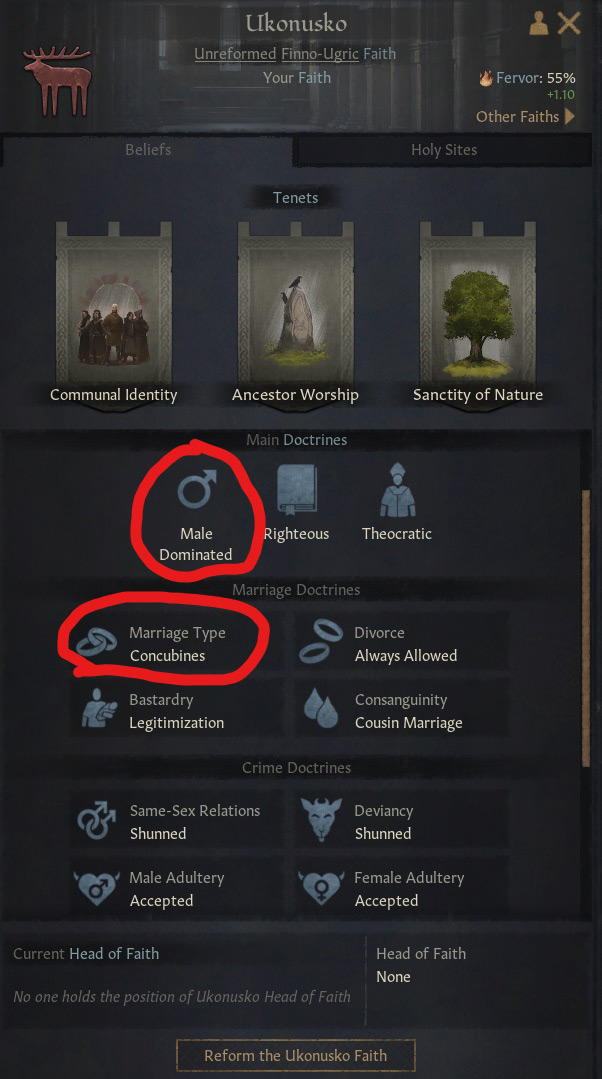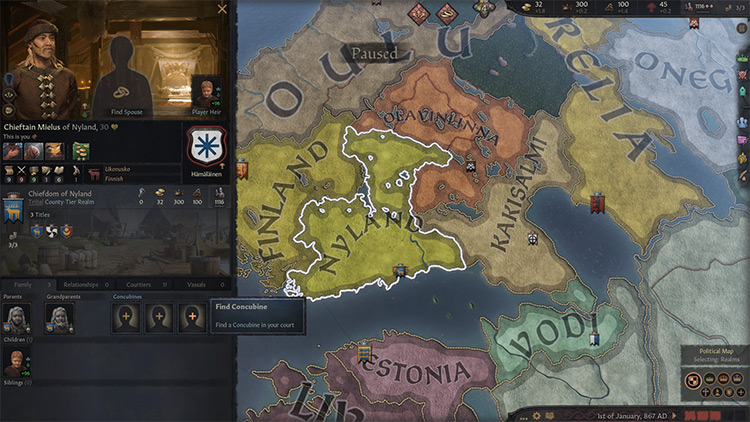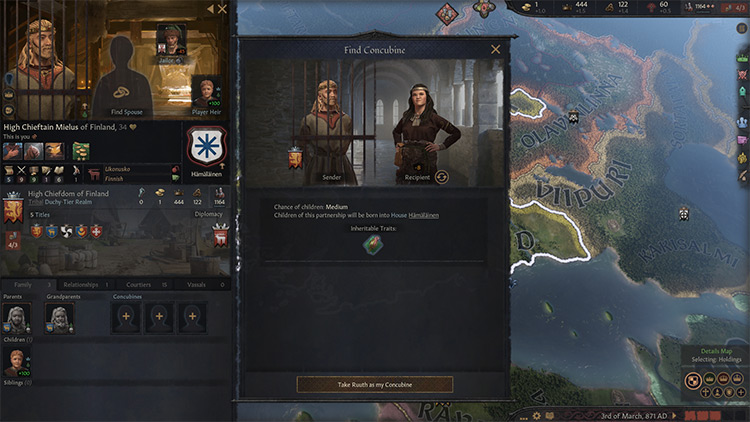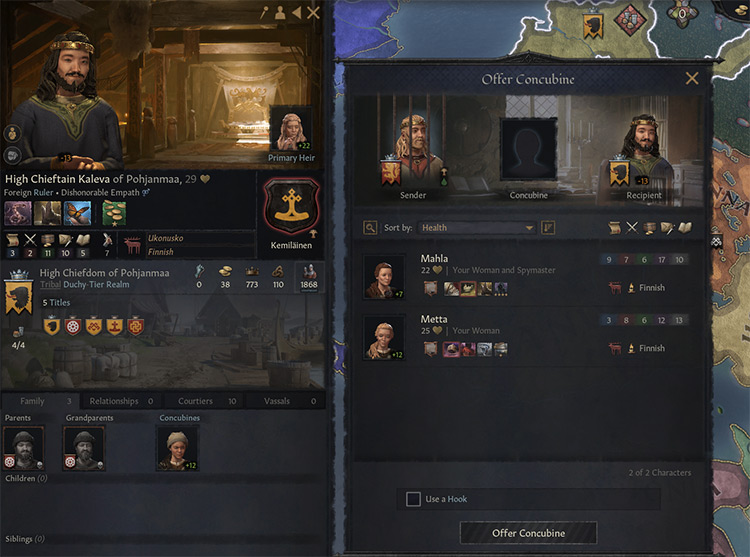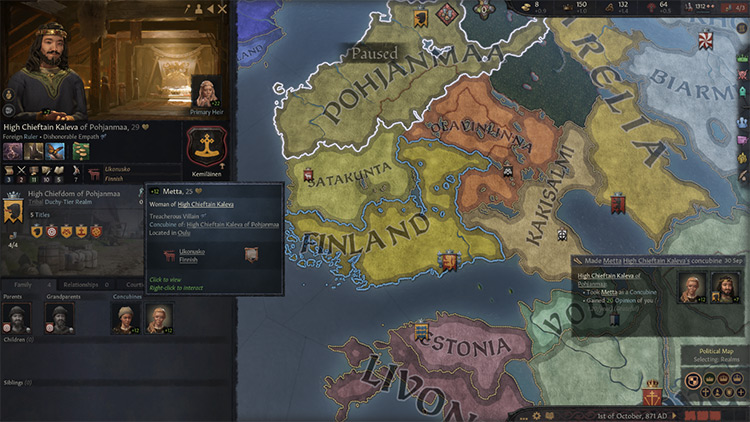This guide is designed to help you get a better understanding about all thing concubines:
1: Who Can Have Concubines?
The concubine mechanic is tied to religion in Crusader Kings 3. Various religions all across the map allow them, with perhaps Ásatrú (the Norse faith) and Tengri (the main religion of the steppes) being the most notable or well known. You can see if a religion allows for concubines by looking at any given religion’s information, as seen below. Two things are important here, marriage type and gender domination. The marriage type doctrine is self-explanatory, as it needs to be set to concubines. Gender domination is more of a hidden requirement in the game. A woman in a male dominated religion will not be able to have concubines, and vice versa for a man in a female dominated religion. Both may have concubines in an equal dominated religion.
2: How To Get a Concubine
The easiest way to find a concubine is to click on your character and press the empty portraits under your concubine section, as seen above. This will pull up a list of eligible concubines. The eligible concubines will only be individuals that are actively at your court. As a small ruler, such as a count, the list will likely be very small. However, the number of options will increase with time and domain size. You may simply right click on an individual to see if you can take them as a concubine, but this is much more tedious. Curiously, not all individuals have to be unmarried to be an eligible concubine. If you happen to capture somebody, say, a rival ruler’s wife, you can navigate to the prisoner window and forcefully take the wife as your concubine. Speaking of prisoners, if you find your character as one, you can still take concubines. This differs from a normal marriage, as your character must be free to get married.
3: What Do Concubines Do in CK3?
Unlike a normal spouse, a concubine won’t find themselves boosting your character’s stats. However, they can do other jobs in your court, as seen below. Other than this, a concubine’s main function is succession security. A male character with 1 wife and 3 concubines can, theoretically, have 4 different, legitimate, children at the same time. Yes, legitimate. The children of concubines will be able to inherit in the exact same manner as children of the main spouse with only a miniscule penalty to their diplomacy stat. Since this is the main benefit of concubines, it makes them decidedly less useful for female rulers. The chance of having children will still be increased for each extra concubine a woman has, but the rate of children will be nowhere near a man’s. Fortunately, you as the ruler can do some more things with your concubines.
4: What Can You Do With Concubines?
As mentioned above, a concubine does not function in the same way that a spouse does. Most notably, they do not bring with them any possible alliance as a normal marriage does in the game. However, consorts can be given to other people (as well as received). This provides a modest amount of relation with the recipient, which may be helpful in forming alliances, or cooling rebellious desires. Concubines can also be dismissed at will. There are only a few instances where this is really useful. But if you ever find yourself in the position, there is no requirement to do it. This also ignores your religion’s divorce law, so even if divorce is illegal, it won’t apply to consorts. And finally: Concubines (or more accurately, the lack of them) can cost your character monthly prestige. Religions that allow a character to have concubines expect you to use this feature. As such, each title rank requires your character to have a certain number of concubines. All of these things are the basics of the concubine feature. They aren’t too difficult to get a handle on, but they can provide many benefits if utilized effectively.
